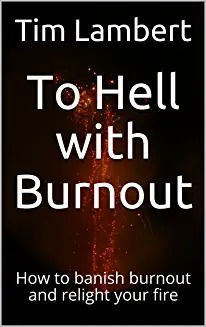Homeworking: How New is it, Really?
- Tim Lambert

- Apr 3, 2020
- 2 min read
Recent events have forced many people back into the home. Here they are expected to be good parents, great teachers, brilliant housekeepers and now, exceptional workers. It’s a tall order for anyone. But how new is it, really?

The difference at the moment is that this change has been thrust upon us, with little time to prepare for it. Many people have worked from home for years (I’m one of them) and have everything set up, including dedicated space so that they can have a separation between the ‘office’ and their family space. I used to leave the home office to visit clients at their premises or facilitate training programmes at venues across the world. I may do again, sometime. But for many people, they haven’t had the time to set up this infrastructure or new way of working. It’s all come as a huge shock.
But when we look at the situation more closely, we see that many of these people have been working from home for years. They’ve been putting in a full shift at the office or factory, and then going home to do a few more hours of catch-up work in-between feeding themselves and their family, putting kids to bed, keeping their home in a relative state of orderliness, and completing all the household admin.
According to a Harvard Business School survey in 2019, 26% of work is done outside of normal working hours. That’s practically a full day’s worth over the week. Typically, people are spending at least one hour per day at home, outside their working hours, writing or responding to emails or reading papers in advance of early morning meetings. For many people it’s been far more than one hour, for years and years and years.
The rise of smart technology has outsmarted us. We haven’t yet caught up with the implications of being available 24/7 and we’ve allowed our working hours to bleed into all areas of our lives. People have been losing the capacity to switch-off and wind down. Expectations have piled up on us, resulting in a growing sense of obligation that we should always be available and respond immediately.
My recent book, To Hell with Burnout, describes what happens when these conditions are allowed to prevail. And it’s a timely warning that with enforced homeworking we need to be smarter about how we protect the other important aspects of our lives: family, friends, activities, learning, community, health and spirituality.
Homeworking may well become the norm for many people once the Covid-19 crisis has passed. Many people will have been surprised how productive they have been, even in these unusual circumstances. Removing the need to commute has bought them back extra hours in their day, and technology has enabled them to feel sufficiently connected with colleagues. They will have realised what’s possible, having been forced to try it out, and they may not want to go back. If this is the case, we all need to start thinking now about how we can operate in this way without destroying family life and mental health.








Comments